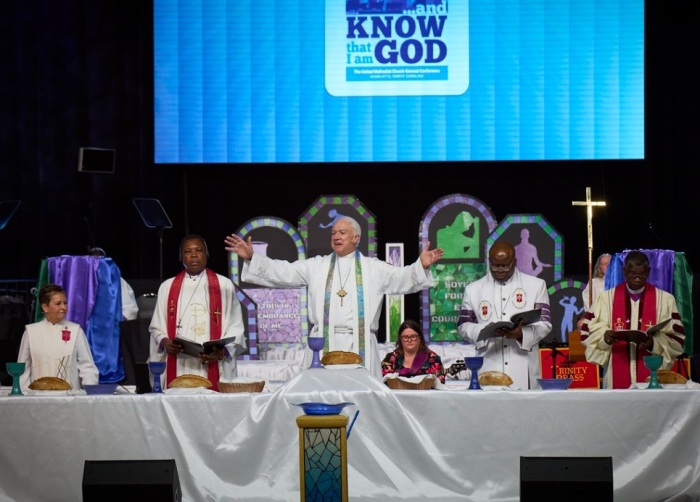
The United Methodist Church leadership has clarified that a recent ruling from its top court allowing pastors to determine if they can officiate same-sex weddings dispute objections from church trustees does not overrule regional bans on the unions.
The United Methodist Judicial Council ruled last month that church trustees could not prohibit a pastor from performing a same-sex wedding ceremony.
In a statement last Friday, the UMC Council of Bishops stated that the "decision has created some anxiety and consternation," but stressed UMC regions that continue to ban same-sex marriage can still prohibit such ceremonies.
Specifically, the bishops referenced the UMC central conferences, which are regional bodies of the worldwide denomination outside the United States.
"As bishops, we expect that the pastors we appoint will continue to exercise their authority with deep pastoral sensitivity to the congregation and community to which they are appointed," stated UMC Council of Bishops President Tracy Malone.
"We also affirm that the Judicial Council decision does not negate the powers and duties that apply only in the central conferences. We recognize the varying legal contexts in different parts of the world where The United Methodist Church is in ministry."
The decision "does not authorize United Methodist clergy to violate civil law in their practice of ministry," Malone noted, as same-sex marriage is illegal in several countries. She assured that the ruling "does not negate the authority given" to central conferences.
"If a central conference has set standards and policy that do not permit same-sex marriages, no pastor in the central conference is permitted to perform a same-sex marriage," Malone continued.
"If the central conference has delegated the authority to set standards and policy for marriage to the annual conferences within its boundaries, and an annual conference has set standards and policy that does not permit same-sex marriages, no pastor in the annual conference is permitted to perform a same-sex marriage."
Judicial Council's Decision Number 1516 came in response to a request for a declaratory decision from the Arkansas Annual Conference. Although UMC law "gives authority to a local church board of trustees for the supervision, oversight, and care of all real property owned by the local church," the council ruled that "authority over the use of the building has limits."
"Pastors have the authority to decide whether they will perform the religious marriage service of a couple, and they cannot be prevented from or interfered with when using any of the property of the local church for such a service," read Decision 1516.
"Similarly, the pastor cannot be required to use church facilities to perform a religious marriage service. If a pastor does not wish to perform a certain marriage ceremony (in the discretion of the pastor), the local trustees cannot require them to do so."
At the UMC General Conference last year, delegates voted overwhelmingly to remove from the Book of Discipline a longstanding prohibition on clergy blessing same-sex unions.
The change came after more than 7,500 congregations disaffiliated from the UMC over the issue, as many objected to some progressive church leaders not enforcing the rules.
Most churches that left the UMC have affiliated with the theologically conservative Global Methodist Church, while others have become nondenominational congregations.
The General Conference decision nevertheless allows clergy and regional bodies to continue prohibiting same-sex weddings, with many congregations retaining the previous rules.
For example, Highland Park United Methodist Church of Dallas, Texas, a congregation that former President George W. Bush is known to attend, announced shortly after the General Conference vote that it would not allow same-sex weddings on their property.